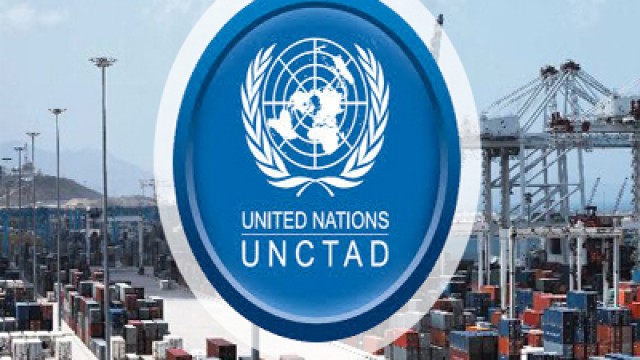 • Trails Zambia, Egypt, Ethiopia, S’Africa
• Trails Zambia, Egypt, Ethiopia, S’Africa
• As UN body unveils database to ease trend
Continued rejection of non-oil exports from Nigeria and other African countries, especially agro-allied commodities, translates to a yearly loss of $23 billion in earnings, the United Nations Conference on Trade and Development (UNCTAD) has said.
Latest data by UNCTAD show that developing countries lose an estimated $23 billion per year, equal to about 10 per cent of their exports to the Group of 20 (G20), through failure to comply with non-tariff measures.Non-tariff measures cover a broad range of legitimate and important policy instruments, including measures to protect the health of a country’s citizens and its environments.
With trade organisations advocating decline in tariff to ease trade flows, non-tariff measures have replaced them as a key barrier on faster global trade growth, as governments introduce more non-tariff procedures to protect consumers and thriving local industries.
In terms of rejection rate, the number of rejects in major foreign markets between 2012 and 2013 revealed that Benin Republic had two; Egypt had 95; Ethiopia, three; Zambia, five and South Africa, 56, while Nigeria recorded 102.
Already, the European Union (EU), one of Nigeria’s major trading partners, has extended its deadline for lifting the ban on Nigerian exports to its member countries beyond June 31, 2016, due to the nation’s inability to meet specified global standards on its non-oil exports.
“These kinds of measures are becoming increasingly widespread,” said UNCTAD Deputy Secretary-General, Joakim Reiter. “For example, measures on the cleanliness and pathogen-free status of food, known as sanitary and phytosanitary measures cover more than 60 per cent of agricultural trade.
“Such regulatory measures disproportionately increase trade costs for small and medium-sized enterprises and developing countries, particularly the least developed. We estimate, for example, that the impact of the European Union’s sanitary and phytosanitary measures comes to a loss of about $3 billion for low-income country exports. That’s equal to 14 per cent of their agricultural trade with the European Union.”
Reiter added: “We certainly don’t expect G20 countries to drop all their non-tariff measures, which serve important policy objectives such as health and safety but we do need to manage this issue better.
“Non-tariff measures are the new frontier in our quest for greater global trade,” he said, noting that better information would reduce the costs of non-tariff measures. “It’s all about transparency and harmonising regulations.”
Aiming to enhance transparency on non-tariff measures, UNCTAD also launched on Tuesday a database to list the non-tariff measures of 56 countries, covering 80 per cent of world trade. The database allows policymakers to search by country and product, to find out quickly relevant non-tariff requirements.
“This database will improve countries’ ability to understand the regulatory requirements, helping them to comply more easily and at less cost,” said Guillermo Valles, director of the Division on International Trade in Goods and Services and Commodities.
The African Union has already requested that UNCTAD support it with the Continental Free Trade Area by setting up a similar database. This database will provide necessary information on non-tariff measures, so that negotiators can harmonise their regulations, cutting the costs of trade.
“The use of non-tariff measures in the world will increase but this should be done in a smart way, for example, by using international standards to a maximum extent,” said Ralf Peters, Chief ad interim of the Trade Analysis Branch. “Use non-tariff measures to protect your citizens but don’t let them compromise trade because that will block economic growth and job creation,” he added.



